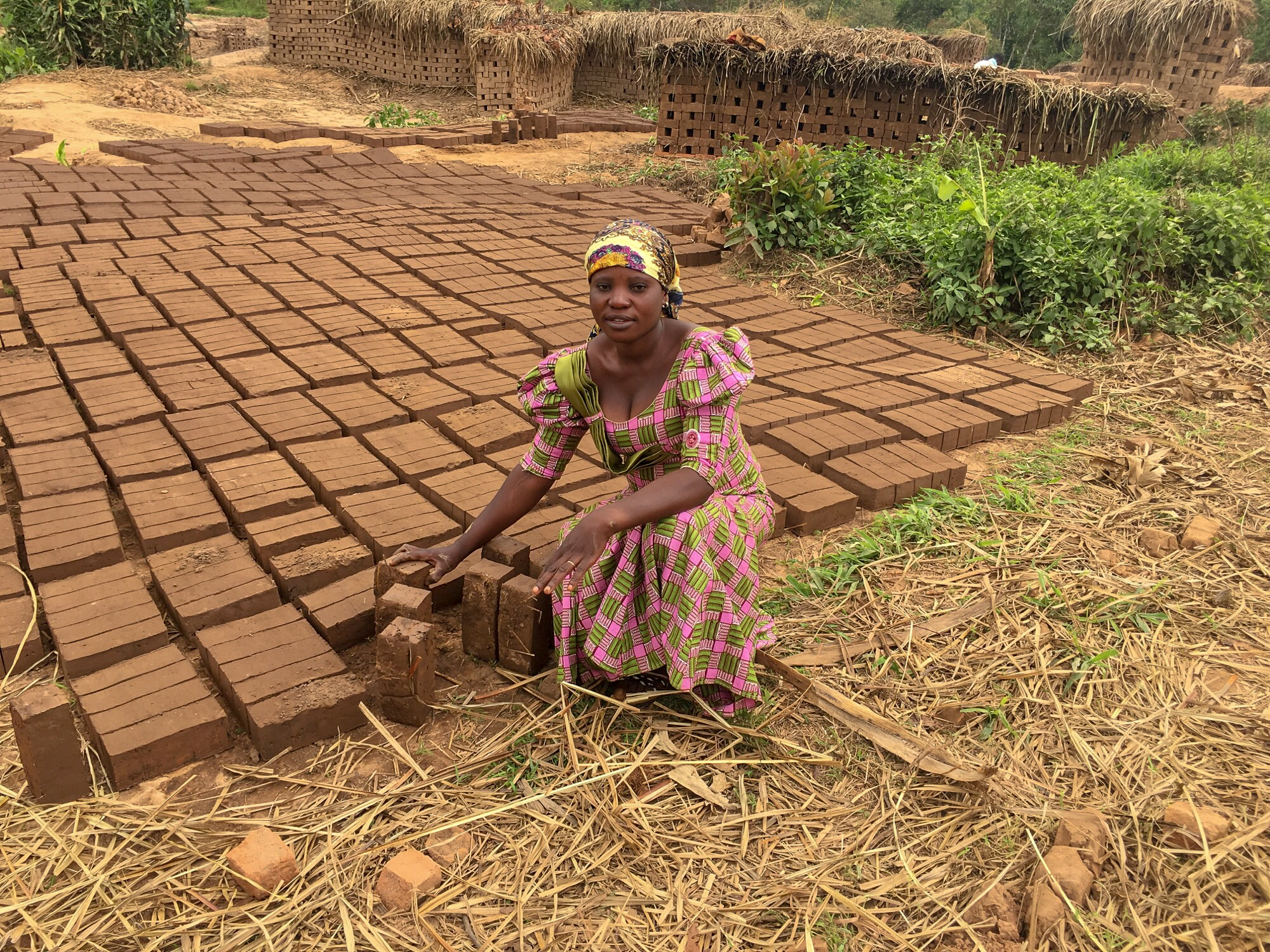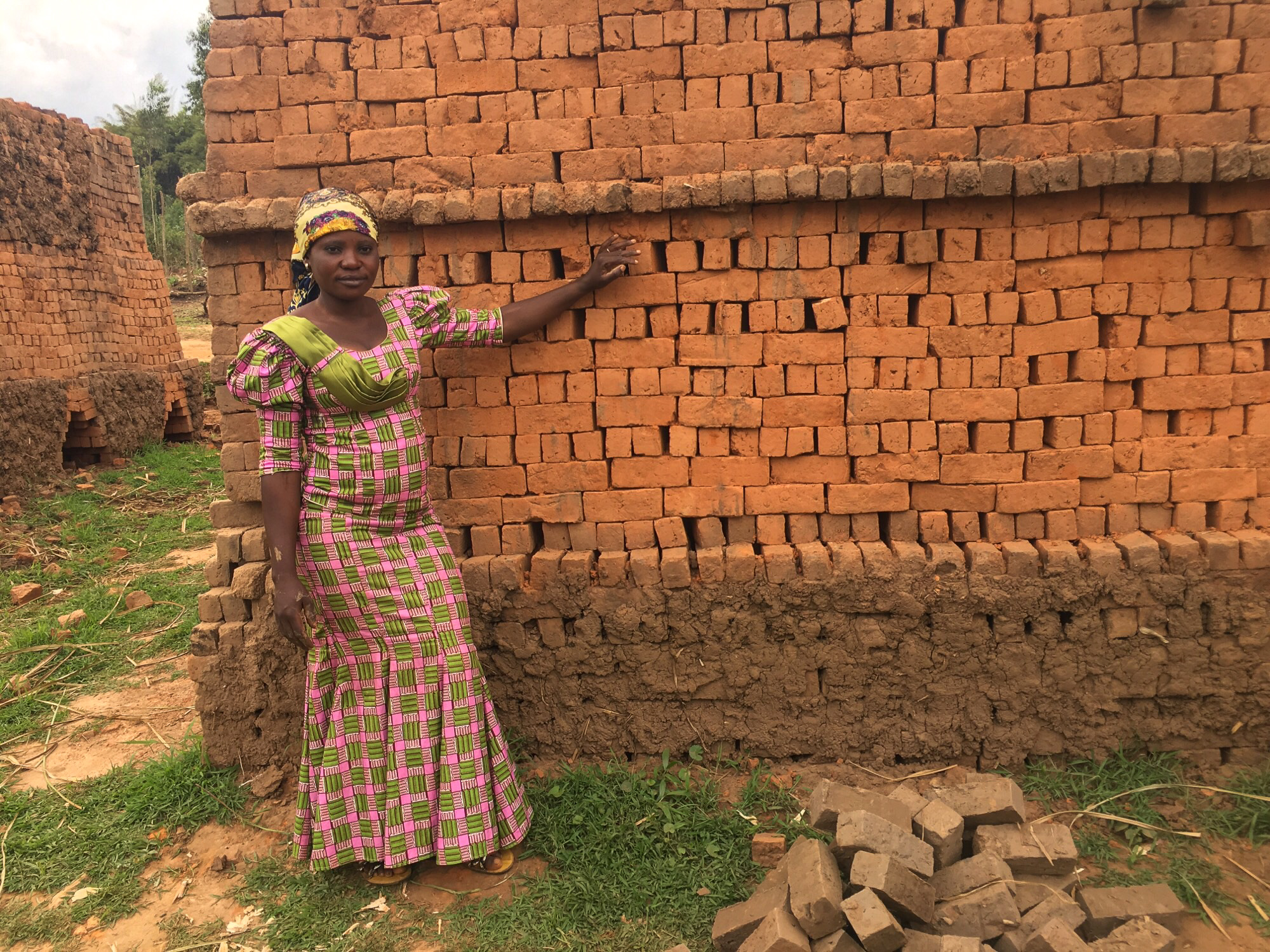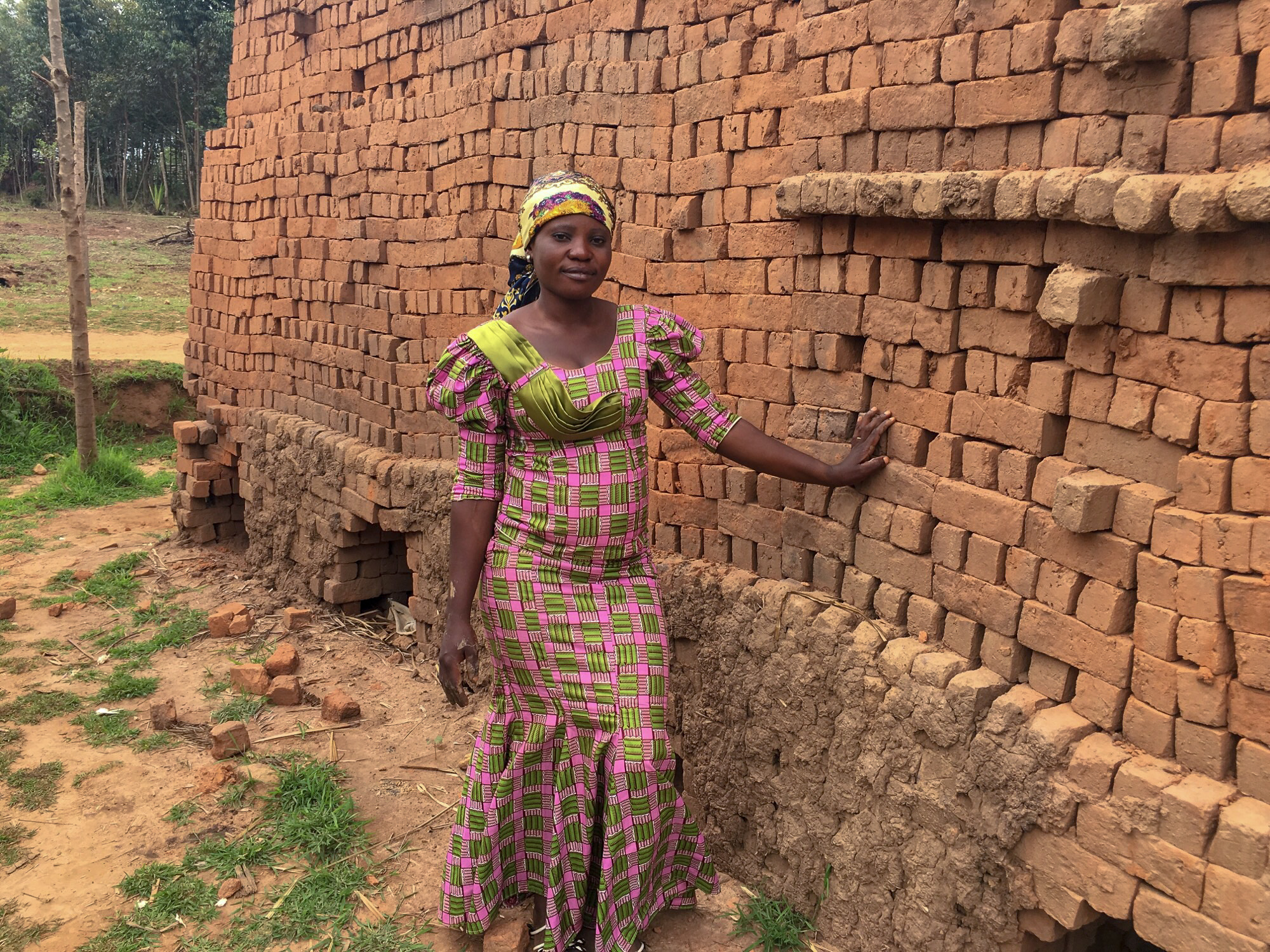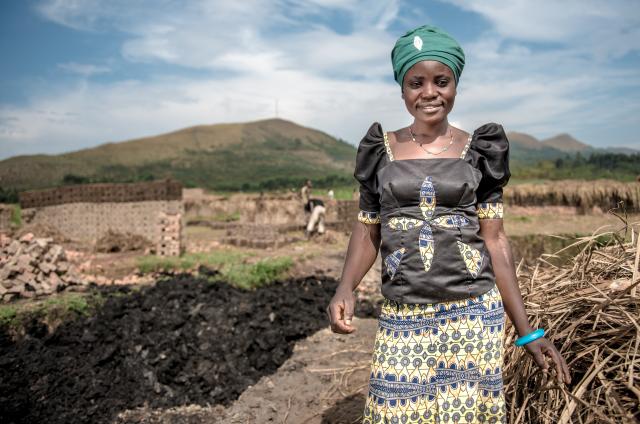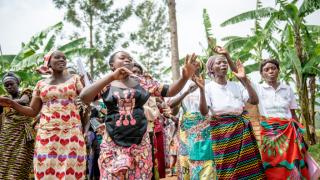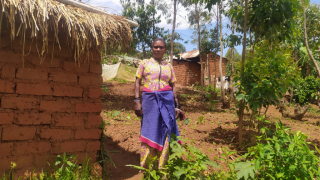My name is Cinama
Cinama is 26 years old, from the village of Nyangezi in South Kivu, in the eastern Democratic Republic of Congo.
After graduating from Women for Women International’s programme in 2016, she became a brickmaker and now runs a successful brickmaking business. She is also employed by Women for Women International as one of our vocational trainers, teaching other women in her community how to make bricks. This is Cinama’s story.
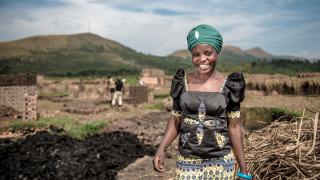
"My father died when I was three years old. I don’t remember his face.
Our land was given to my father’s brother, since none of my brothers were old enough to inherit. My mother lost everything. She was left to bring up 7 children with no source of food or income.
We had one meal a day and my mother worked so hard in other people’s fields to support us, but there was never any money to save, or pay for our school fees.

I missed the first enrollment in my village, but then I saw some other women coming back from the training centre and they were praising the programme.
The most important topic I learned about was women’s rights. I wanted to change things, because my mother was a victim, she couldn’t inherit land just because she was a woman.
I started my own brick-making business just after I graduated from the programme, in 2016.
I also formed a business collective with a group of other women. Every 6 months, we divide up our profits between each of the members.
My family is extremely poor, and I am the only one who can support them.
I have built a house, I can provide food for my mother, sisters and brothers. I’m even able to support my sister’s children after she was abandoned by her husband. I pay their school fees and take care of their medical bills.
Today, I own land valued at $1000, as well as my brickmaking workshop and production site. In my community, it is rare for a woman to be a property owner, but I am proud of being an owner among men.
Women for Women International were looking for skilled women to become vocational trainers. My business group proposed me, and I was selected from among three others.
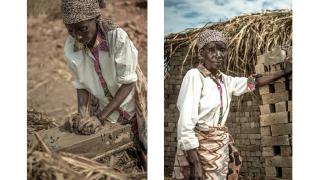
I am proud of being able to teach other women – even women who are older than me. They believe I can help them to change their life.
My dream for the future is to follow the steps of Women for Women International…I believe one day I will create my own organisation that will support women in difficulty."
Women for Women International's work in the DRC is generously supported by players of People's Postcode Lottery.
Read more
Celebrating Graduation Day in the DRC
subtitle:
600 of our programme participants in the DRC have graduated from our 12-month social and economic empowerment programme. It was a chance for our programme graduates to reflect on their journey and share their achievements with their classmates, families and wider communities.
Solange
subtitle:
There are many young girls who come from my village who are rape victims. When they come I try to encourage them, telling them "You still have life, one still has value." I tell them that they should hope for the future.
In the Democratic Republic of Congo, restrictive gender norms make it difficult for women to purchase land in their own name. Read Gorette, Furaha and Gentille's stories - three of our programme graduates who have defied the odds and now help other women to do the same.

